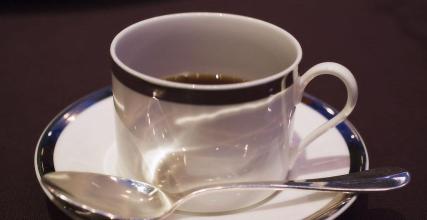Introduction to the production area of Bolivian Coffee with rich and unique aroma
Wash Bolivia by hand with a cup of water, it is recommended to wash Bolivia with 15 grams of powder at 87 degrees water temperature, ratio of water to powder at 1:15, moderate grinding (small Fuji ghost tooth knife 3.5-4 grinding), V60 filter cup, the first injection of 30g water for 25s steaming, injection to 110g water cut off, waiting for powder bed water to half and then water injection, slow water injection until 230g water, not at the end, extraction time 2Rd 00s flavor: roasted nuts and almonds dry aroma The entrance shows the soft acidity of oranges and white pomelo, with sweet caramel, smooth texture, cleanliness and balance of nut milk. Lake Titicaca, which is located on the Coya'ao plateau on the border of Bolivia and Peru, is the highest and largest freshwater lake in South America, and is also one of the largest freshwater lakes in the world. It is also the highest navigable lake in the world and the third largest lake in South America. Bolivian coffee has the advantage of high altitude and excellent varieties of coffee. Here the traditional Tibica and a small amount of Kaddura are highly valued in the world market. In the past, coffee trees in Bolivia used to act as hedges and ornaments around the garden. Real commercial production began in the early 1950s. The coffee industry in Brazil was badly damaged by the great frost in 1957, while Bolivia (Bolivia) benefited and developed rapidly. Bolivian coffee is grown at an altitude of 18000 to 2670 meters above sea level, of which Arabic washed coffee beans are exported to Germany and Sweden, which are not the best in taste today, and South America is rich in coffee beans with a bitter taste, and Bolivia is no exception. The unique tropical rain forest environment in parts of Bolivia provides excellent natural conditions for the growth of organic coffee. The aroma of Bolivian coffee is rich and unique, both the aroma of ground beans and the aroma of coffee are obviously rich, similar to the mixture of flower and fruit aroma, which is impressive.

Important Notice :
前街咖啡 FrontStreet Coffee has moved to new addredd:
FrontStreet Coffee Address: 315,Donghua East Road,GuangZhou
Tel:020 38364473
- Prev

Introduction of Panamanian Jade Manor Rosa Coffee Flavor and Taste Manor
Panamanian Emerald Manor-Esmeralda Manor (Panama Geisha Hacienda La Esmeralda) in its early years, Esmeralda Manor (Esmeralda) mostly followed Japan in its recognition of top coffee, while Geisha, with its hurricane-like power, hit the coffee world. This coffee revolution is so fierce that it has occupied the throne of the coffee kingdom for a long time, such as the Blue Mountains of Jamaica and Kona of Hawaii.
- Next

The characteristics of Arabica Coffee Bean growing area, the difference between Bourbon and Tippica Coffee Bean varieties
With the exception of Ethiopia, the origin of Arabica, the mutants or mixed-race varieties cultivated or found in Central and South America, India and East Africa are mainly Tibica and bourbon, and the genetic complexity is far lower than that of Ethiopia. this is the main reason for the weak physique and poor disease resistance of Arabica outside Ethiopia. In addition,
Related
- Detailed explanation of Jadeite planting Land in Panamanian Jadeite Manor introduction to the grading system of Jadeite competitive bidding, Red bid, Green bid and Rose Summer
- Story of Coffee planting in Brenka region of Costa Rica Stonehenge Manor anaerobic heavy honey treatment of flavor mouth
- What's on the barrel of Blue Mountain Coffee beans?
- Can American coffee also pull flowers? How to use hot American style to pull out a good-looking pattern?
- Can you make a cold extract with coffee beans? What is the right proportion for cold-extracted coffee formula?
- Indonesian PWN Gold Mandrine Coffee Origin Features Flavor How to Chong? Mandolin coffee is American.
- A brief introduction to the flavor characteristics of Brazilian yellow bourbon coffee beans
- What is the effect of different water quality on the flavor of cold-extracted coffee? What kind of water is best for brewing coffee?
- Why do you think of Rose Summer whenever you mention Panamanian coffee?
- Introduction to the characteristics of authentic blue mountain coffee bean producing areas? What is the CIB Coffee Authority in Jamaica?

